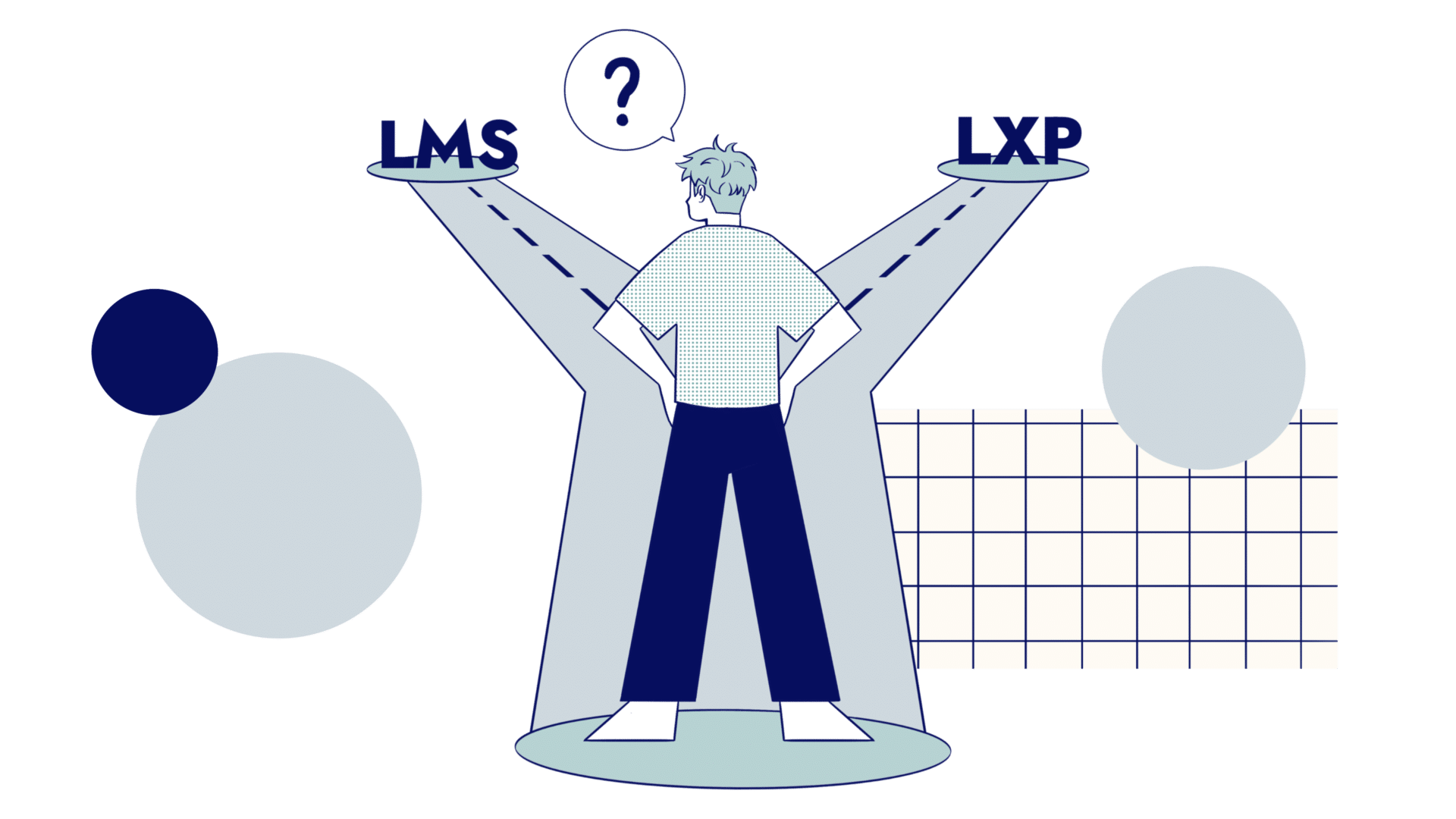
LMS vs LXP: Navigating the Modern Learning Landscape

In a constantly evolving world, companies must invest in robust training technologies to ensure the growth and development of their employees’ skills. Two prominent types of platforms stand out: Learning Management Systems (LMS) and Learning Experience Platforms (LXP). While these solutions may seem similar, they cater to distinct needs and offer different benefits. This article explores the fundamental differences between an LMS and an LXP, helping you choose the best solution for your organization.
What is an LMS?
A Learning Management System (LMS) is a technology platform dedicated to managing, distributing, and tracking training programs. Traditionally, LMSs focus on centralized administration of educational content, enrollment management, progress tracking, and certification issuance. These systems are ideal for formal and structured training, such as employee onboarding, compliance training, and skill development programs.
What is an LXP?
Conversely, a Learning Experience Platform (LXP) emphasizes user experience and personalized learning. LXPs are designed to facilitate the discovery of training content through various channels, such as social media, videos, and articles. They focus on self-directed and interactive learning, offering personalized recommendations based on user preferences, goals, and behaviors. LXPs encourage a more informal, user-centered approach to learning, providing diverse and often user-generated content.
Key Differences: LMS vs LXP
While LMSs and LXPs share some similarities, such as the ability to store and deliver digital content, they differ in several key aspects:

Learning Approach:
LMSs are structured and administrative-focused, while LXPs promote informal learning and user experience.
Content Type:
LMSs focus on closed and centralized content suited for specific training and compliance. LXPs aggregate and recommend open and decentralized content from various sources.
Usage and Objectives:
LMSs are ideal for required training and certification management, whereas LXPs are better suited for personal and professional development, offering a wide range of content for diverse skills.
Choosing the Right System for Your Organization
Selecting between an LMS and an LXP is not just about features; it’s a strategic decision aligned with your organization’s specific goals and needs. Here are key factors to consider when choosing the most appropriate system:
Training Objectives:
- LMS: Best for organizations looking to provide structured and compliant training, such as compliance, safety, or certification programs. LMSs are designed to administer specific courses and rigorously track learner progress.
- LXP: Ideal for companies aiming to promote continuous and personalized learning. LXPs support autonomous content exploration and are suited for more flexible and informal learning environments.
Content Type and Target Audience:
- LMS: Suited for managing formal and centralized content, often necessary for mandatory or technical training. This system is particularly useful for audiences needing specific job-related skills.
- LXP: Suitable for diverse and open content, allowing users to choose topics of interest. This system is effective for companies looking to develop a variety of skills among employees, including those not directly related to their current roles.
Complexity of Training Programs:
- LMS: Ideal for structured training programs with a clear hierarchy of courses and modules. LMSs are often preferred for their ability to consistently manage large-scale training with uniform quality.
- LXP: Offers flexibility for less structured programs and encourages self-directed learning. LXPs are suitable for environments where employees are encouraged to pursue various training opportunities and explore new skills independently.
Administrative Management and Integration:
- LMS: Often more robust in terms of administrative management, with integrated tools for progress tracking, enrollment management, and certification issuance. LMSs can be integrated with other enterprise systems, such as HRIS (Human Resource Information Systems).
- LXP: Focuses on user experience with modern features such as content personalization and AI-based recommendations. LXPs can also integrate with collaboration and communication tools to enhance the learning experience.

Examples of LMS Platforms
There are numerous LMS and LXP platforms available, each offering specific features to meet the diverse needs of organizations. It’s crucial to choose one that aligns with your goals. Here are a few examples:
Teach on Mars:
Teach on Mars is an innovative LMS platform offering mobile training solutions, ideal for companies looking to provide online training with an emphasis on interactivity and engagement.
Moodle:
Moodle is a popular open-source LMS that allows educators to create customized online learning environments. Known for its flexibility and adaptability to various training types.
Canvas LMS:
Canvas LMS is widely used by educational institutions and organizations for offering online courses, featuring course management, collaboration, and progress tracking tools.
Examples of LXP Platforms
Degreed:
Degreed is an LXP that helps users develop skills through a wide range of educational content, including online courses, articles, and videos. It offers personalized recommendations and supports continuous self-learning.
EdCast:
Edcast offers training solutions for businesses and institutions, focusing on content curation from various sources and personalized learning experiences. It also includes social collaboration and gamification features.
360Learning:
360 Learning emphasizes collaborative learning, allowing employees to create, share, and discuss training content. It promotes a participatory approach where learners can contribute to content enrichment.
Training platforms are constantly evolving to meet the changing needs of organizations. While LMSs and LXPs may seem to serve similar purposes, they offer distinct learning experiences. In some cases, integrating both solutions can provide a comprehensive approach, combining the strengths of each system to maximize training effectiveness. It’s crucial to understand your organization’s specific needs before making a choice.
By carefully selecting between an LMS and an LXP, or even opting for a hybrid solution, your organization can not only optimize the efficiency of its training programs but also offer a rich and engaging learning experience for its employees.
Discover


Book A Demo
Get a personalized demonstration by one of our game design experts.


